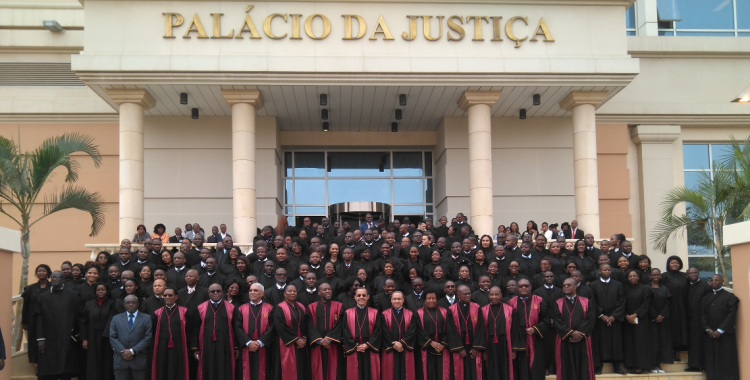The position of the JSA was made known in a letter sent to the President of the Supreme Court challenging the actions of the organs of the judiciary.
The judges' association reacted to the deliberation of the plenary of the Supreme Court, which took place on 12 March, on the formal opening ceremony of the judicial year in the country, on 31 March, which was made through a message from the plenary of the Supreme Court in a "different format than usual".
In the message, the plenary of the Supreme Court said that because of the moment the country is experiencing, due to the pandemic caused by covid-19, which requires special preventive measures to prevent the spread of the virus, it decided that, exceptionally, the ceremony of the opening of the judicial year would be held "in a different format than usual".
"It also refers to the message that heard the bodies that under the law intervene in the act of opening the judicial year, the plenary of the Supreme Court has made known to the Angolan people and, in particular, to judicial magistrates, public prosecutors, bailiffs, lawyers and other servants of justice, the formal opening of the judicial year 2020, which has as its motto "Judicial Reform, the way to consolidate the Democratic State and the Rule of Law," the EYA stressed in the letter.
According to the association, this message "worries" as the Organic Law on the Organisation and Functioning of the Common Judicial Courts (LOFTJC) states that the judicial year runs from the first day of March to the 21st of December of each calendar year, providing that the opening will be marked by a solemn ceremony in which the President of the Republic, the President of the Supreme Court, the Attorney General of the Republic and the Bar Association take the floor.
For the judges, the opening of the judicial year being marked by a solemn ceremony and the entities that take the floor creates "a propitious moment for the institutions that intervene in the administration of justice, but also the holder of power, to address to the nation not only words about the state of justice, but above all the commitment of each institution, which end up being real lines of force and guidance for the operators of justice.
The letter adds that, although the norm states "that the president of the Supreme Court takes the floor, the understanding that one may have is that he takes it as president of the Superior Council of the Judiciary, insofar as the opening of the judicial year is for the courts of common jurisdiction and the president of the Supreme Court, when taking the floor, does not use it only with reference to the functioning of the Supreme Court, but rather the courts of common jurisdiction.
The JSA understands that despite the impossibility of the entities foreseen by law to take the floor in a solemn ceremony, given the challenges the country is facing, "nothing prevented other mechanisms from being activated, especially with the use of new technologies, so that, even in an unconventional way, they would be known and become public for the nation and, especially for judicial operators, the vision and commitment of each of the institutions".
According to the EYA, this vision and commitment that is expected of each of the institutions involved "cannot be glimpsed in view of the content and content of the message from the plenary of the Supreme Court, then made public to mark the opening of the judicial year 2020, without prejudice to its merit, at a time of countless uncertainties".
"Therefore, it does not fall within the competence of the plenary of the Supreme Court, which is an essentially jurisdictional body (...) to deliberate on the opening of the judicial year, as it is a matter of the organisation and functioning of the courts of common jurisdiction, the plenary of the CSMJ is, without a shadow of a doubt, the body that should deliberate on the matter", the document stresses.







